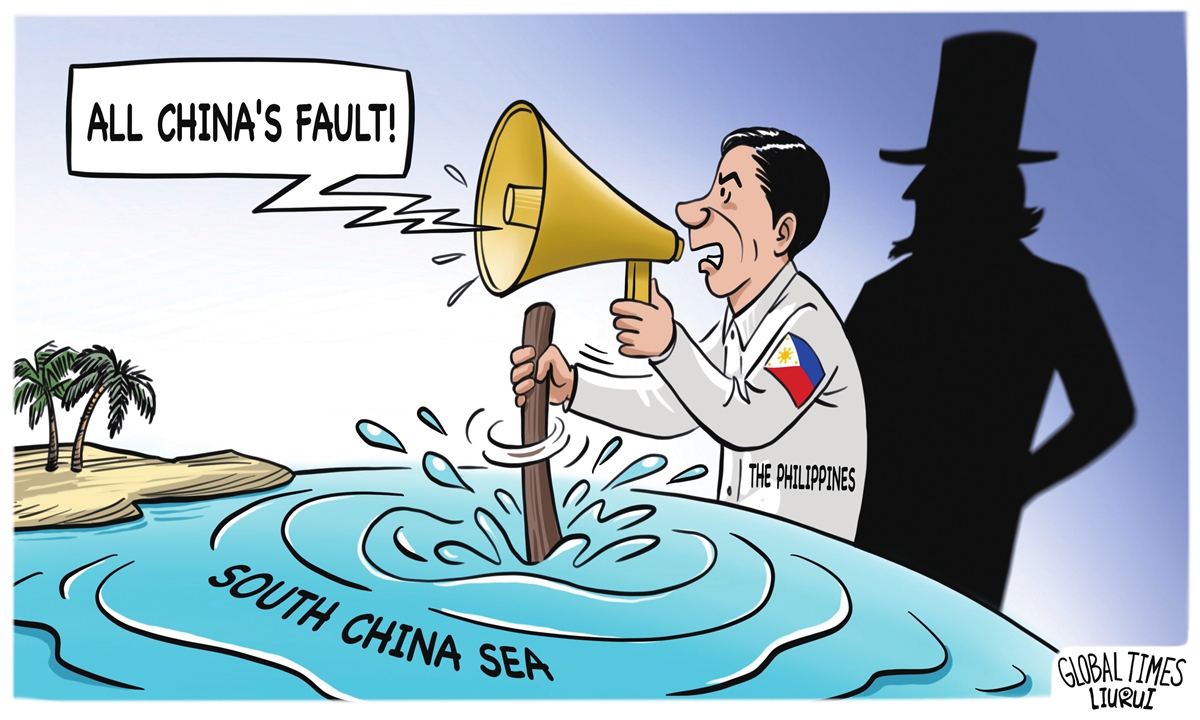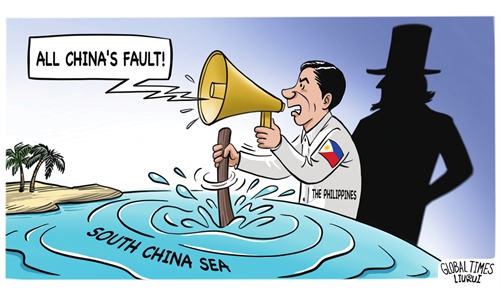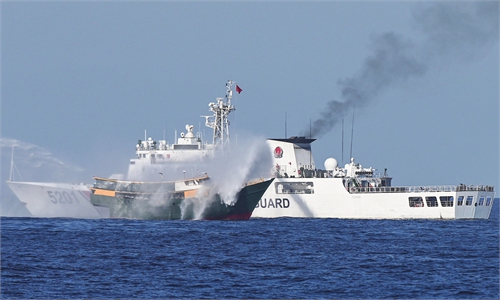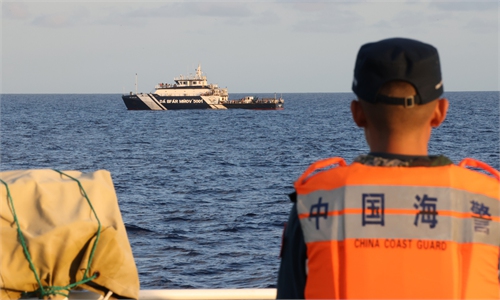
Illustration: Liu Rui/GT
While reiterating that the arbitral tribunal in the South China Sea arbitration exceeded its jurisdiction and made an illegitimate ruling, Chinese experts warned on Monday that the Philippines is scheming for "new arbitration" on the issue, which would undermine regional peace and stability.
With the approach of the 8th anniversary of the so-called South China Sea arbitration awards, a ruling in 2016 that challenged China's claims in the waters and seriously violates international law, including the United Nations Convention on the Law of the Sea, the Philippines has been taking frequent actions at the Ren'ai Jiao (also known as Ren'ai Reef), infringing on China's sovereignty.
In the latest provocation, Philippine National Security Adviser Eduardo Ano said in a statement on Saturday that his country will continue to maintain and supply its South China Sea outposts without seeking permission from any other nation, trying to dismiss Beijing's demand to do so, Bloomberg reported.
Ano was responding to Chinese Foreign Ministry spokesperson Mao Ning's comment on Friday that if the Philippines notifies the Chinese side in advance, China would potentially allow delivery of essential supplies to the illegally grounded warship or evacuation of personnel concerned.
Gu Xiaosong, dean of the ASEAN Research Institute of Hainan Tropical Ocean University, predicted that the provocations by the Philippines regarding Ren'ai Jiao will be escalated in the near future, and support from the US will also increase.
According to a press report by the Xinhua News Agency on Monday, Chinese Vice Foreign Minister Sun Weidong said that the biggest security challenge in the South China Sea comes from outside the region, and external forces led by the US, for geopolitical purposes, have manipulated bloc politics and confrontation of camps, pushed forward military deployments and operations in the South China Sea, instigated the intensification of differences and contradictions related to the sea, and undermined the legitimate rights and interests of littoral countries.
Sun made the remarks when he led a delegation to Laos to attend senior officials' meetings of the Association of Southeast Asian Nations (ASEAN)-China, Japan, the Republic of Korea, as well as the East Asia Summit and the ASEAN Regional Forum from Friday to Saturday.
Experts also warned that while making provocations on Ren'ai Jiao, the Philippines is also trying to dare China to go through another so-called international arbitration.
The Philippines' "revival" of the illegal arbitration is aimed at bringing in external forces and expanding and internationalizing the South China Sea issue, which could escalate the issue into a larger dispute or even conflict, Gu said.
Last week, an international symposium to review the South China Sea arbitration awards was held in Qingdao, East China's Shandong Province, during which Chinese and global legal scholars pushed back, calling the ruling invalid and harmful to international law.
Wu Shicun, chairman of the Huayang Research Center for Maritime Cooperation and Ocean Governance and founding president of the National Institute for South China Sea Studies, said at the symposium that since last year, all the actions the Philippines has taken on the Ren'ai Jiao and the "return to Huangyan Dao [also known as Huangyan Island]" are inseparable from the South China Sea arbitration awards. Having benefited from the first arbitration, the Philippines is now planning a new one, Wu warned.
Wu stressed the urgency for China to again voice its opposition to and challenge the potential arbitration award.



